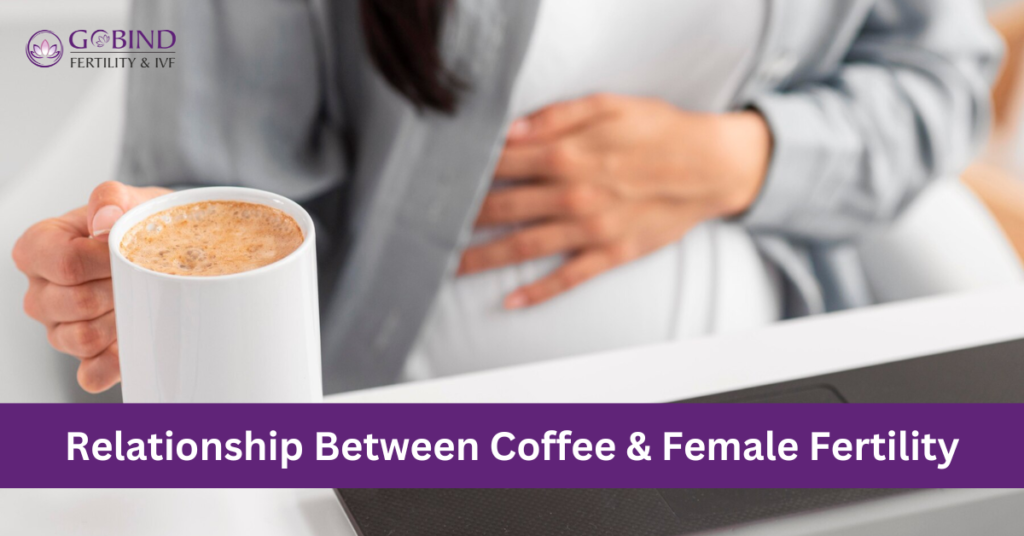Relationship Between Caffeine Consumption And Female Fertility

Caffeine is one of the most widely consumed psychoactive substances in the world, found in coffee, tea, soft drinks, energy drinks, and even chocolate. While moderate caffeine intake is generally considered safe, excessive consumption has been linked to several health concerns, including fertility issues in women. This article explores the relationship between caffeine consumption and female infertility, shedding light on scientific findings and potential risks.
Several studies have investigated the relationship between caffeine consumption and female fertility, yielding varying results:
Pregnancy Caffeine Intake and Miscarriage Risk
A 2016 study by the National Institutes of Health (NIH) found that women consuming more than two caffeinated beverages daily before conception had a 74% higher risk of miscarriage compared to those who consumed fewer. Similarly, male partners consuming the same amount also increased miscarriage risk by 73%.
High Caffeine Consumption During Pregnancy
Research indicates that consuming five or more cups of coffee per day during pregnancy may more than double the risk of miscarriage
Given these findings, it’s advisable for women trying to conceive or who are pregnant to limit caffeine intake. Dr Manju Khurana at Gobind Fertility & IVF Centre recommends keeping caffeine consumption below 200 milligrams per day, equivalent to about one to two cups of coffee.
Understanding Caffeine and Its Effects on the Body
Caffeine is a stimulant that affects the central nervous system, increasing alertness and temporarily reducing fatigue. However, it also influences hormonal balance, blood circulation, and metabolic processes, all of which play a role in reproductive health. When consumed in high amounts, caffeine can have adverse effects on the body, particularly on the reproductive system.
Impact of Caffeine on Female Fertility
1. Hormonal Imbalance
Caffeine consumption has been linked to disruptions in hormonal levels, including estrogen and progesterone, which are crucial for ovulation and pregnancy. Studies suggest that high caffeine intake may alter these hormone levels, potentially interfering with the menstrual cycle and reducing fertility.
2. Delayed Conception
Research indicates that women who consume large amounts of caffeine may take longer to conceive than those who consume it in moderation or avoid it altogether. Caffeine affects the fallopian tubes, impairing their ability to transport eggs from the ovaries to the uterus, which may hinder fertilization.
3. Increased Risk of Miscarriage
Several studies have found an association between high caffeine intake and an increased risk of miscarriage. Caffeine crosses the placenta, and since the fetus lacks the necessary enzymes to metabolize it efficiently, it may accumulate and lead to adverse effects on fetal development. Women who consume more than 200-300 mg of caffeine per day are more likely to experience pregnancy complications.
4. Negative Effects on Egg Quality
Caffeine has been found to increase oxidative stress and reduce blood flow to the ovaries, potentially affecting egg quality. Poor egg quality can lead to difficulties in fertilization and increase the risk of chromosomal abnormalities, further reducing the chances of a successful pregnancy.
5. Impact on IVF Success Rates
For women undergoing assisted reproductive technologies like in-vitro fertilization (IVF), high caffeine consumption may negatively affect treatment outcomes. Some studies suggest that excessive caffeine intake is associated with lower implantation rates and a higher likelihood of failed pregnancies in women undergoing fertility treatments.
Safe Caffeine Consumption for Women Trying to Conceive
Experts recommend limiting caffeine intake to improve fertility outcomes. The American College of Obstetricians and Gynecologists (ACOG) suggests that women trying to conceive or who are pregnant should keep their caffeine consumption below 200 mg per day (approximately one 12-ounce cup of coffee).
Here Are Some Practical Tips
Monitor Caffeine Intake
Be mindful of hidden caffeine sources, including tea, sodas, energy drinks, and even certain medications.
Opt for Decaffeinated Alternatives
Choose herbal teas, decaf coffee, or naturally caffeine-free beverages.
Hydrate with Water
Drinking plenty of water helps maintain overall health and supports reproductive functions.
Eat a Balanced Diet
A nutrient-rich diet with antioxidants can help counteract the effects of oxidative stress on reproductive health.
While moderate caffeine intake is unlikely to cause serious fertility issues, excessive consumption may pose risks for women trying to conceive. Reducing caffeine intake, adopting a balanced diet, and maintaining a healthy lifestyle can enhance fertility and improve reproductive health. Women experiencing fertility concerns should consult Dr Manju Khurana of Gobind Fertility & IVF Centre to assess their lifestyle choices and receive personalized recommendations for optimal reproductive health.
